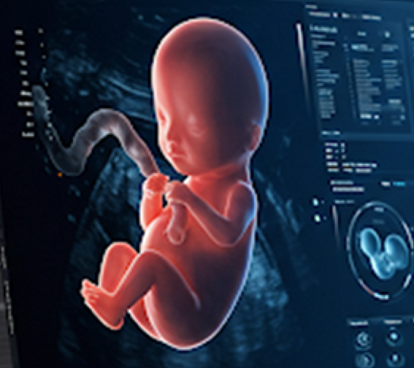
The Evolution of Healthcare: Transitioning from Health 2.0 to Health 3.0
September 13, 2023
The realm of healthcare has consistently stood at the forefront of technological advancement, embracing every wave of innovation to revolutionize the provision of medical services. The journey from Health 2.0 to Health 3.0 represents this tradition, signifying a transformative pivot in how we approach patient well-being, manage information, and enhance overall health results.
Health 2.0, emerging in the late 2000s, introduced the fusion of web 2.0 technologies into the healthcare landscape. This era witnessed the emergence of electronic health records (EHRs), telemedicine platforms and patient portals, empowering patients to access their medical data online. Health 2.0 also welcomed the inception of health-centric social networks and virtual communities where we, as individuals, could candidly exchange experiences and offer mutual encouragement.
While Health 2.0 brought forth several favorable advancements, it also encountered certain constraints. The primary focus was mainly directed towards the digitization and the availability of health information, but there was a reduced priority given the utilization of this data for the purpose of improving patient welfare. Moreover, these systems frequently operated independently, with various healthcare providers using different EHR systems that lacked cohesive integration. This lack of interoperability resulted in fragmented care and operational inefficiencies within the healthcare domain.
Welcome to Health 3.0!, The emerging era of healthcare that adopts a more comprehensive and patient-centric methodology. As we step into Health 3.0, we embark on a journey marked by a holistic perspective. This period utilizes the advancements of cutting-edge technologies like artificial intelligence (AI), machine learning, and. IoT, edge computing, and blockchain. These technologies are employed not only to digitize health information but also for their skilled analysis and transformative application. This amplifies patient care and enhances health outcomes.
Let’s focus on one of the key features of Health 3.0 that is the use of AI and machine learning to analyze health data. These technologies can identify patterns and trends in health data that humans might miss, enabling healthcare providers to predict health issues before they become serious and to personalize treatment plans based on a patient's unique health profile. This predictive and personalized approach to healthcare has the potential to significantly improve health outcomes and reduce healthcare costs.
Health 3.0 also places a greater emphasis on patient empowerment and engagement. With the rise of wearable devices and health apps, patients can now track their own health data and share it with their healthcare providers. This not only gives patients more control over their own health but also provides healthcare providers with a more comprehensive view of a patient's health. In addition, healthcare providers can be aware of health issues and symptoms that the patient could have experienced earlier. They can act and prevent further problems. We are in the predictive medicine era.
While the transition from Health 2.0 to Health 3.0 brings many exciting possibilities, it also presents challenges. For example, ensuring the privacy and security of health data is a major concern, especially as more health data is shared and analyzed. There's a tangible risk of accentuating health inequalities if these technologies remain within the reach of a privileged minority. We must work on avoiding this risk.
Regardless, this shift holds great promise for the future of healthcare. By leveraging the power of AI, machine learning, and blockchain, Health 3.0 is positioned to offer a dimension of care that is not just personalizedand predictive but also meticulously coordinated. We have the potential to pave the path for enhanced health results across a wide range.
To wrap things up, the evolution from Health 2.0 to Health 3.0 marks a profound transformation within the healthcare sector. While Health 2.0 was about digitizing health information and making it accessible, Health 3.0 is about using this information in ways that improve patient care and health outcomes. As we continue to navigate this transition, it's important to address the challenges that arise and ensure that these new technologies are used in ways that benefit all patients, and not just a privileged few.
At SNGULAR, we are aware of, and aligned with, these challenges. We are actively striving to offer our healthcare industry clients solutions that drive the progression towards Health 3.0. Positioned in innovative technologies and deep expertise, our approach is dedicated to constructing healthcare ecosystems that are patient-centric, data-infused, and seamlessly interconnected.
This coordination serves to elevate patient outcomes, streamline operations, and introduce a fundamental change in the way healthcare services are delivered and experienced.
Our latest news
Interested in learning more about how we are constantly adapting to the new digital frontier?

Insight
April 7, 2025
World Health Day in the AI revolution era

Tech Insight
March 5, 2025
AI Governance: Challenges and Perspectives

Insight
February 18, 2025
The Transformative Power of AI in Health and Pharma

Tech Insight
February 11, 2025
Unlocking the tech potential in international pharmaceutical tender management
